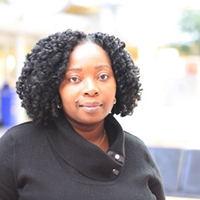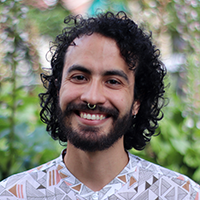Wednesday: Unveiling Paths to Decolonization: Rethinking Perspectives and Embracing Diversity
This seminar will consist of a fireside chat delivered by Associate Professor Caroline Wamala Larsson, Director of Spider, Stockholm University. Researcher Juan Betancur from SEI will join the fireside chat.
When: 17:30 to 18:30 (CET). A 45 minute evening seminar at 17:30 to 18:15 (CET) that will follow by a 15 min Q&A.
Where: Teknikringen 1, KTH Campus.
Click to watch this recorded seminar on YouTube
This seminar will explore the dynamic journey toward decolonization, shedding light on the multifaceted approaches and transformative pathways involved in rethinking perspectives and embracing diversity. Delving into historical narratives and contemporary paradigms, the seminar will look at the complexities of dismantling colonial legacies while advocating for inclusive, diverse frameworks that foster equitable and empowering systems. Through insightful theoretical insights, this seminar will hopefully illuminate the significance of decolonization as a catalyst for societal evolution.
About
Caroline Wamala Larsson

Caroline Wamala Larsson is an Associate Professor in Gender Studies and is the director of SPIDER, a centre of enablement at Stockholm University. SPIDER works with inclusive digitalization that benefits all, and this it does through project implementation, applied research, capacity building and networking.
Located in the Gender and Technology discipline, Caroline Wamala Larsson’s research focuses on the use of ICT for development and gender as a point of analysis in ICT use. Her research acknowledges the mutual construction of gender and technology, contributing a deeper understanding of the cultural embeddedness of ICT. Notable publications include 2 edited volumes:
- "Mobile Participation: Access, Interaction and Practices" (books.google.se)
- "Gendered Power and Mobile Technology: Intersections in the Global South." (books.google.se)
Juan Betancur

Juan Camilo Betancur Jaramillo is a Colombian researcher at Stockholm Environment Institute Centre for Latin America and focuses on gender analysis in environmental issues, including colonisation, environmental history, and justice. Rooted in his Latin American background, he advocates for gender equality in research and explores the interconnected elements of power, patriarchy, and racism.
